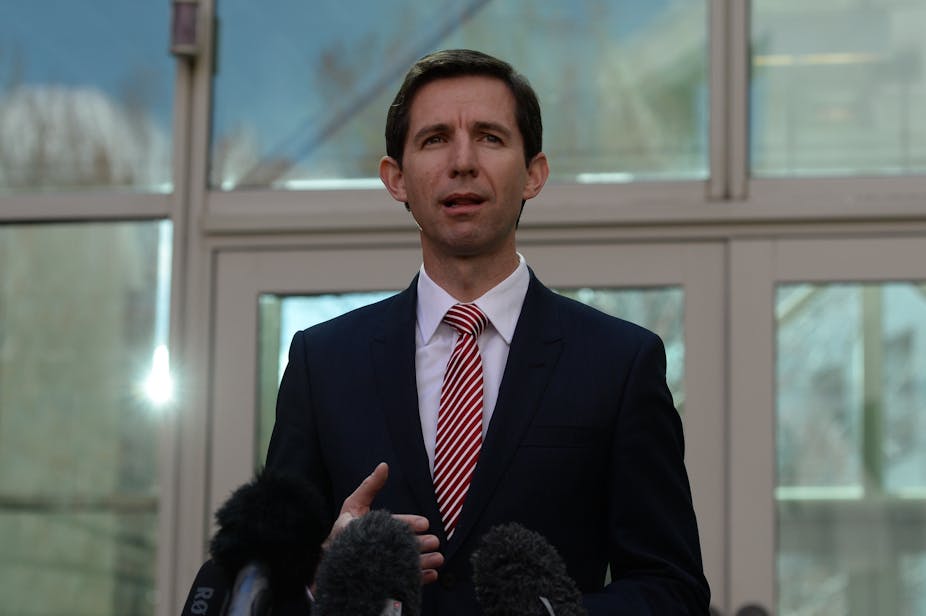The Turnbull government will abandon plans to deregulate university fees in time for the 2016 university year, according to new Education Minister Simon Birmingham.
In his first speech as minister, Birmingham said universities and students needed funding certainty for 2016.
Birmingham said the government would be consulting on reforms, and if any were to be legislated in the future they would not commence until 2017 “at the earliest”.
“Students and higher education institutions can now plan on the basis that arrangements for government funding and student contributions will be the same in 2016 as they were in 2015, indexed for inflation,” he said.
“With this additional time, I will be consulting with the higher education sector, students, employers, my Senate colleagues, and other stakeholders on how we can best meet the challenges of finding a sustainable basis for students, universities and taxpayers to fund an adaptive and world-class higher education system with fair, equitable access for students.”
He congratulated his predecessor, Christopher Pyne, on shoring up support for the reforms among university peak bodies and vice-chancellors. He said the political impasse of the bill had created uncertainty for the sector.
RMIT adjunct professor Gavin Moodie said the announcement is no surprise given prospective students submitted their applications for admission in 2016 on the understanding that fees would be capped at their current levels.
Moodie said universities also expected the news but will be glad it has been confirmed. He added that of more concern to universities would be that the Turnbull government promptly indicate the direction of its thinking on funding and fees.
“The government should consider increasing the caps on fees by from 25% to 100%,” instead of uncapping the fees entirely, he said.
“The government should also consider introducing loan fees on HECS-HELP like the loan fees on undergraduate FEE-HELP to cover the costs of these loans and to achieve consistency in loan conditions.”
Grattan Institute higher education program director Andrew Norton said universities might get some financial relief from this announcement.
“The Department of Education has been delaying some university payments because the Coalition government planned to legislate Labor’s efficiency dividend. But with that seemingly dropped for 2016, the extra money may flow,” Norton said.
He said the main benefit, however, would be the opportunity to go back to the drawing board on higher education reform.
“Birmingham has signalled some clear differences with Labor,” he said.
“The Coalition will proceed in some form with broadening the demand-driven system to non-university higher education providers and private universities. That means it is offering to cut fees for those students, while Labor will leave them paying full fees.
"Birmingham is also suggesting that Labor will cap student numbers. While Labor will probably only do that in limited circumstances, the threat of capping will make some universities nervous.”

